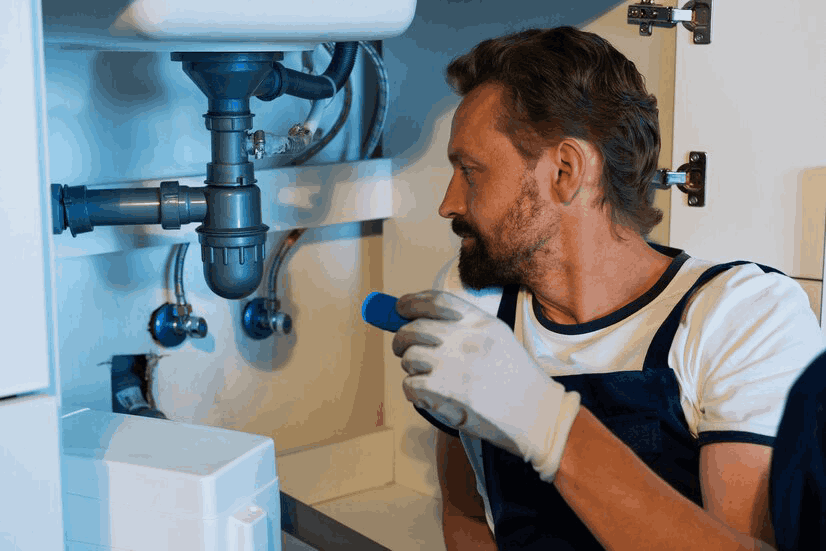Understanding Water Conservation Techniques
In a world where water scarcity is becoming an increasingly pressing issue, conserving water is more important than ever. As homeowners, we can play a significant role in conserving water by making small changes to our plumbing systems and habits. Not only does conserving water help the environment, but it also saves money on utility bills. In this blog post, we’ll explore various ways to conserve water with your plumbing and why it’s essential.
How Can I Save Water in My Pipes?
Your plumbing system is a significant contributor to your household’s water usage. Here are some ways you can save water in your pipes:
- Fix Leaks Promptly: Even small leaks can waste a significant amount of water over time. Regularly check your pipes for leaks and repair them promptly.
- Install Low-Flow Fixtures: Replace old faucets and showerheads with low-flow models. These fixtures use less water without compromising performance.
- Insulate Your Pipes: Insulating your hot water pipes reduces the amount of time it takes for hot water to reach your faucet, which can help you save water.
- Use Aerators: Install aerators on your faucets to reduce water flow while maintaining water pressure.
How Homeowners Can Conserve Water
As a homeowner, there are several steps you can take to conserve water:
- Upgrade to Water-Efficient Appliances: Replace old, inefficient appliances such as washing machines and dishwashers with water-efficient models.
- Collect Rainwater: Install a rain barrel to collect rainwater for use in watering your garden or lawn.
- Water Wisely: Water your lawn and garden during the early morning or late evening to minimize evaporation.
- Use Mulch: Mulch helps retain moisture in the soil, reducing the need for watering.
- Fix Leaks: Regularly check for and repair leaks in your plumbing fixtures and irrigation system.

What Are 10 Ways to Save Water?
- Take Shorter Showers: Cutting your shower time by just a few minutes can save a significant amount of water.
- Turn Off the Tap: Turn off the tap while brushing your teeth or shaving to save water.
- Only Run Full Loads: Wait until you have a full load of laundry or dishes before running your washing machine or dishwasher.
- Capture Running Water: Capture running water while waiting for it to heat up and use it for watering plants or cleaning.
- Use a Broom: Instead of hosing down your driveway or sidewalk, use a broom to clean them.
- Install a Dual Flush Toilet: Dual flush toilets allow you to choose between a full flush and a half flush, depending on the waste.
- Upgrade Your Toilet: Replace old toilets with water-efficient models that use less water per flush.
- Check for Leaks: Regularly check your plumbing fixtures for leaks and repair them promptly.
- Water Your Lawn Wisely: Water your lawn deeply but infrequently to encourage deep root growth.
- Consider Xeriscaping: Xeriscaping involves using drought-resistant plants and landscaping techniques to reduce the need for watering.
Why Is Water Conservation Important in the Plumbing Industry?
Water conservation is crucial in the plumbing industry for several reasons:
- Sustainability: Conserving water helps ensure that there will be enough clean water for future generations.
- Cost Savings: Water-efficient plumbing fixtures and appliances can help homeowners save money on their water bills.
- Regulatory Compliance: Many regions have regulations in place to limit water usage, and plumbing professionals play a vital role in helping homeowners comply with these regulations.
- Reduced Environmental Impact: Conserving water helps reduce the environmental impact of water extraction and distribution.
How Do You Make Tap Water Last Longer?
Making tap water last longer involves using it more efficiently and reducing waste. Here are some tips to help you make tap water last longer:
- Fix Leaks: Repair leaks in your plumbing fixtures promptly to prevent water waste.
- Install Water-Efficient Fixtures: Replace old faucets, showerheads, and toilets with water-efficient models.
- Use Less Water: Be mindful of how much water you use and look for ways to reduce your consumption.
- Reuse Water: Capture running water while waiting for it to heat up and use it for watering plants or cleaning.
What Is Water Conserving Plumbing?
Water-conserving plumbing refers to the use of fixtures and techniques that reduce water consumption. This can include:
- Low-Flow Fixtures: Faucets, showerheads, and toilets that use less water per use.
- Smart Irrigation Systems: Irrigation systems that use sensors to detect soil moisture levels and adjust watering accordingly.
- Greywater Recycling Systems: Systems that capture and treat wastewater from sinks, showers, and washing machines for reuse in irrigation or toilet flushing.
How Long Will 15 Gallons of Water Last?
The length of time 15 gallons of water will last depends on how it is being used. Here are some examples:
- Showering: A typical shower uses around 2 gallons of water per minute, so 15 gallons of water would last approximately 7.5 minutes.
- Brushing Teeth: Leaving the tap running while brushing your teeth can use around 1 gallon of water per minute, so 15 gallons of water would last approximately 15 minutes.
- Flushing the Toilet: Older toilets can use up to 6 gallons of water per flush, while newer water-efficient models use around 1.6 gallons per flush. With an older toilet, 15 gallons of water would last around 2.5 flushes, while with a water-efficient toilet, it could last around 9.4 flushes.
Conclusions
Conserving water with your plumbing is not only crucial for the environment but also for your finances. By implementing the tips mentioned above, you can significantly reduce your water usage and contribute to water conservation efforts. Whether it’s fixing leaks, installing water-efficient fixtures, or simply being mindful of your water usage, every small change makes a difference. If you need assistance with your plumbing or have any questions about water conservation, feel free to contact us at Peckerton Water Damage. Our team of experts in Fort Lauderdale is here to help you with all your plumbing needs. Call us at (863) 328-5225.

